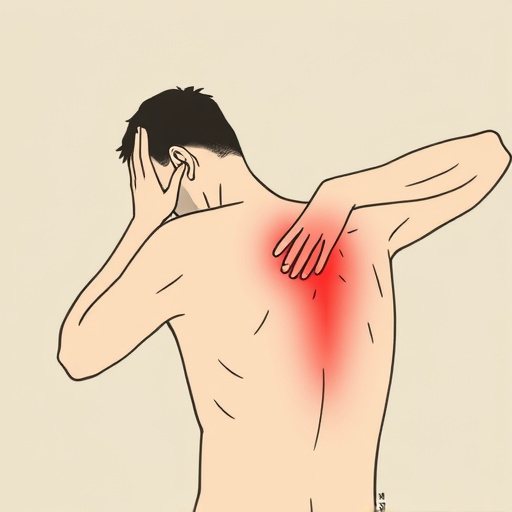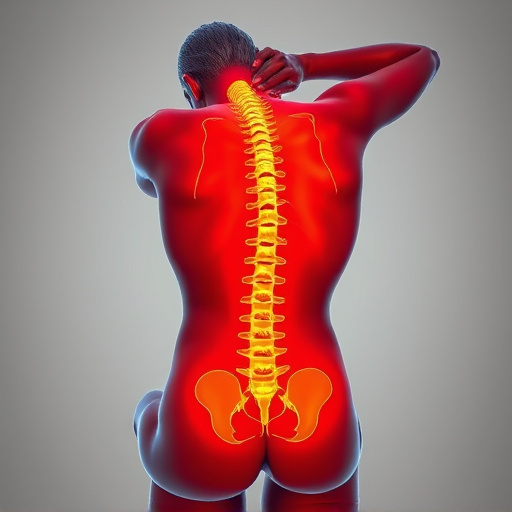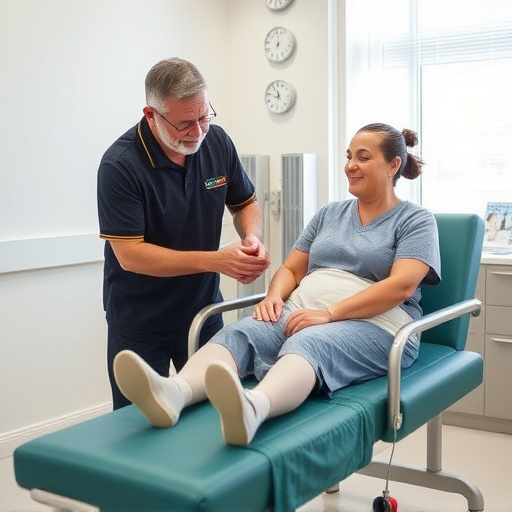A Workers Compensation Doctor specializes in treating on-the-job injuries, offering structured rehabilitation and unbiased medical opinions crucial for claims processes. They focus on return-to-work capabilities, distinct from personal physicians who prioritize general health and well-being. Understanding this distinction ensures fair resolutions and effective management of work-related injuries.
When an injury or illness arises from work, understanding the role of a workers’ compensation doctor is crucial. These medical professionals specialize in occupational health and are integral to the claims process. Unlike personal physicians who provide general healthcare, workers comp doctors focus on treating work-related injuries and illnesses, ensuring employees receive appropriate care while minimizing employer liability. This article explores the distinct roles, key differences, and their implications for successful workers’ compensation claims.
- Understanding Workers Compensation Doctor Role
- Personal Physician vs. Professional Medical Care
- Key Differences and Their Impact on Claims
Understanding Workers Compensation Doctor Role

A Workers Compensation Doctor plays a vital role in managing and treating work-related injuries or illnesses, ensuring that affected employees receive appropriate medical care and support. Their primary responsibility is to evaluate, diagnose, and treat conditions arising from workplace accidents or ongoing job-related stresses. This specialized doctor is often the first point of contact for workers seeking treatment for on-the-job injuries, such as sprains, strains, fractures, repetitive strain injuries (RSIs), or even more severe conditions like herniated discs causing sciatica treatment needs.
These medical professionals are experts in occupational medicine and are well-versed in the unique aspects of work-related health issues, including prevention, rehabilitation, and return-to-work strategies. They assess not only the physical symptoms but also consider the psychological impact of workplace injuries, focusing on muscle recovery and managing soft tissue injuries effectively. By providing specialized care tailored to workers’ needs, these doctors contribute significantly to ensuring employee well-being and facilitating a safe return to work.
Personal Physician vs. Professional Medical Care

When a worker sustains an injury on the job, one of the key components of their recovery process is medical care. This can often lead to a debate between two types of healthcare providers: the personal physician and the workers compensation doctor. While both play vital roles in healing, they offer distinct experiences and approaches. A personal physician, typically your regular healthcare provider, offers ongoing care and treats a wide range of conditions and symptoms. They focus on preventive medicine and general health management. In contrast, a workers compensation doctor is a specialist who focuses specifically on occupational injuries and illnesses. Their expertise lies in diagnosing, treating, and managing work-related injuries, including complex cases involving sports injuries recovery or post accident rehabilitation.
The primary difference lies in the context and nature of their services. Personalized treatment plans are tailored to individual needs and pre-existing conditions, whereas workers compensation doctors adhere to guidelines and protocols set by the employer’s insurance company. The latter ensures a structured approach to post accident rehabilitation, aiming to facilitate a safe return to work while minimizing long-term disability risks. This specialized care is crucial for effective management of work-related injuries, ensuring employees receive the appropriate medical attention needed for sports injury recovery or other occupational health issues.
Key Differences and Their Impact on Claims

When it comes to workers’ compensation claims, one of the critical distinctions lies between a worker’s comp doctor and their personal physician. These professionals play significantly different roles, which can have a profound impact on the outcome of a claim. A workers compensation doctor is specifically trained and appointed to evaluate injuries sustained on the job, focusing on the patient’s ability to return to work and ensuring compliance with legal requirements for compensation. They are unbiased experts tasked with providing objective medical opinions, often acting as a bridge between the employer and employee during the claims process.
In contrast, a personal physician is chosen by the individual and typically focuses on their overall health and well-being. While they may offer valuable insights into an injured worker’s condition, their priority isn’ t necessarily aligned with workers’ comp regulations. This difference can be crucial when determining treatment methods and return-to-work timelines. For instance, a personal doctor might recommend physical therapy or shockwave therapy for pain, while a workers’ comp doctor could suggest spinal adjustments as part of a job-specific rehabilitation plan, keeping in mind the patient’s ability to perform duties required by their occupation.
When it comes to managing workplace injuries, a worker’s path often diverges at the point of seeking medical care. Understanding the distinctions between a personal physician and a specialized workers’ compensation doctor is vital for efficient claim processing. The former focuses on ongoing patient care, while the latter is adept at handling work-related injuries, ensuring claims are processed smoothly. Recognizing these differences can streamline the process, offering faster access to tailored medical support for injured workers, ultimately enhancing their recovery experience and return to work prospects.














